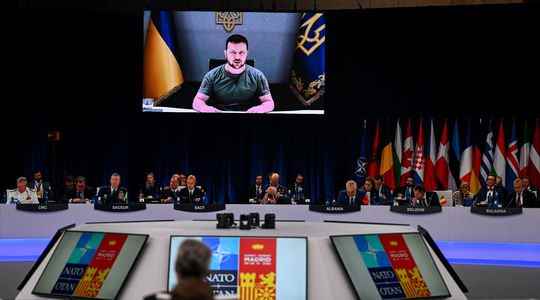Madrid, June 28, 2022: NATO’s Strategic Concept Summit, held as war rages on the Alliance’s borders, opens on… the climate crisis. The same NATO that announced that day the creation of a multi-sovereign venture capital fund of one billion euros intended for dual technologies in the digital and energy sectors. Brussels, July 1, 2022: the Czech Republic, which succeeded France to take over the presidency of the European Union, has Ukraine, energy security, defense and cybersecurity, economic and democratic resilience as priorities.
When NATO talks about climate and risk capital as much as a strategic concept and when a Member State of the Union presents a presidency program with NATO accents, there is no doubt: the traditional benchmarks that have structured the economic, strategic and world politics are disappearing one after another. We repeat over and over again that the future has become unpredictable, it is actually the present that can no longer be read or written in the light of the past. In this new world, the baroque reigns supreme: everything is fluid, changing. “The world is a perennial swing”, said Montaigne. We are there, in the world of blurred landmarks and warrior overtones that the author of Trials described in the 16th century.
As paradoxical as it may seem, this global instability, far from slowing down the decarbonization of our economies and the achievement of carbon neutrality objectives, will facilitate it. Imagine that we had to engage in such a massive transformation in a world where the stability of prices, international relations or growth were assured: who would agree to upset the foundations of our economy, the modes of production, the rules of investment or the taxation in a context where “all other things being equal” would prevail? Defend what the Anglo-Saxons call the “business as usual” no longer makes much sense when there are no more “world as usual”.
A culture of resilience
However, a new international ecological order will emerge from this chaos only on one condition: the ability to adapt or, to use a fashionable word, the emergence of a culture of resilience. Resilience does not mean resisting shocks but on the contrary knowing how to take them and adapt to them. But adapting has the corollary of anticipating: it is with this reading key that we must decipher the decision of the Atlantic Alliance to invest in the technologies of the future. There is no coincidence here insofar as the army is certainly one of the last institutions capable of thinking long term and acting accordingly.
When our Western European democracies have, for fifteen years, abandoned energy supply security policies in favor of an “environmentalization” of energy policies, with the catastrophic result that we observe today , the Alliance, for its part, continued to combine security and energy. Let’s listen to its secretary general, Jens Stoltenberg, point out at the Madrid summit the “risk of creating a patchwork of incompatible systems [si] the thirty Allies of NATO follow their own paths towards energy security and the adoption of new technologies”. There is no need to relay this message in Warsaw or Prague.
Berlin’s murky role
On the other hand, let’s hope that it will be listened to in Berlin, Paris or Brussels, where the environmental culture, totally foreign to that of safety, has imposed itself in the conduct of energy policies. It is possible to doubt this by observing the hydrogen diplomacy currently being carried out by Berlin alone without really understanding its economic rationality or logistical relevance. There is reason to doubt this when the European Parliament votes to ban the sale of new thermal vehicles in 2035 without having considered, debated and protected a strategy for securing raw materials and the industrial value chains of the electric vehicle. which saves Europe from almost total dependence on China.
In a world where crises are hybridizing, let’s hybridize cultures. If NATO has been able to make its climate shift, Brussels should be able to integrate the culture of security into its policies and follow the wise advice of the baroque poet Théophile de Viau: “We would have to invent some new language. Take on a new spirit , think and say better”.
Cécile Maisonneuve is the founder of DECYSIVE and advisor to the Energy-Climate Center of IFRI
